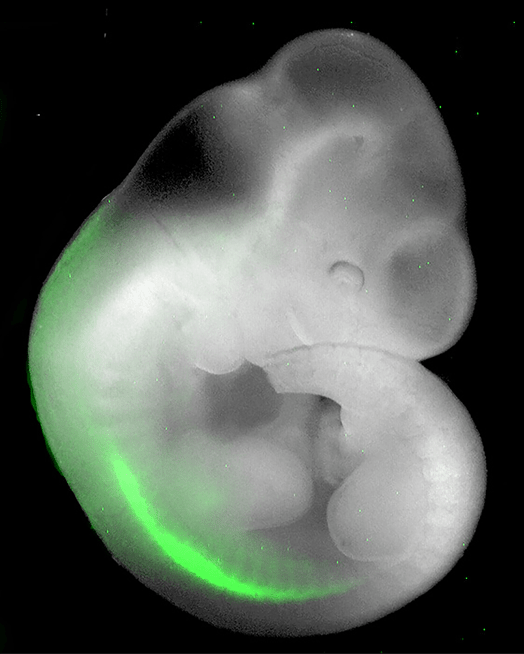CRISPR Models
| Per session | $2,140 |
|---|
 Like traditional gene targeting in embryonic stem (ES) cells, the newest technology for inducing double-strand breaks (DSBs) is being utilized to make sophisticated molecular modifications to endogenous genes. By direct injection or electroporation of DNA or mRNA encoding site-specific nucleases into the one-cell-stage embryo, we can generate DSBs in DNA at specified sequences, leading to targeted mutations. Co-injections of a single-stranded or double-stranded DNA fragment containing homology to the sequences flanking the DSB can produce mutant alleles with precise point mutations or DNA insertions.
Like traditional gene targeting in embryonic stem (ES) cells, the newest technology for inducing double-strand breaks (DSBs) is being utilized to make sophisticated molecular modifications to endogenous genes. By direct injection or electroporation of DNA or mRNA encoding site-specific nucleases into the one-cell-stage embryo, we can generate DSBs in DNA at specified sequences, leading to targeted mutations. Co-injections of a single-stranded or double-stranded DNA fragment containing homology to the sequences flanking the DSB can produce mutant alleles with precise point mutations or DNA insertions.
The production of genetically modified mice has been greatly accelerated by these novel techniques, which also significantly reduce the cost to the investigator. We use C57BL6 inbred mice for this service. Other strains are also available – please inquire. The DSB Animal Production service consists of injecting or electroporating each construct into embryos from fifteen females per day. Fifteen to twenty-five mice will normally be born from the three sessions. These animals are typically screened for the presence of the mutation by Next Generation Sequencing. The number of mutant animals typically varies from one to five from three sessions. After weaning at 4 weeks of age, founder animals are transferred to the investigator.
Email completed documents to
mia@wustl.edu